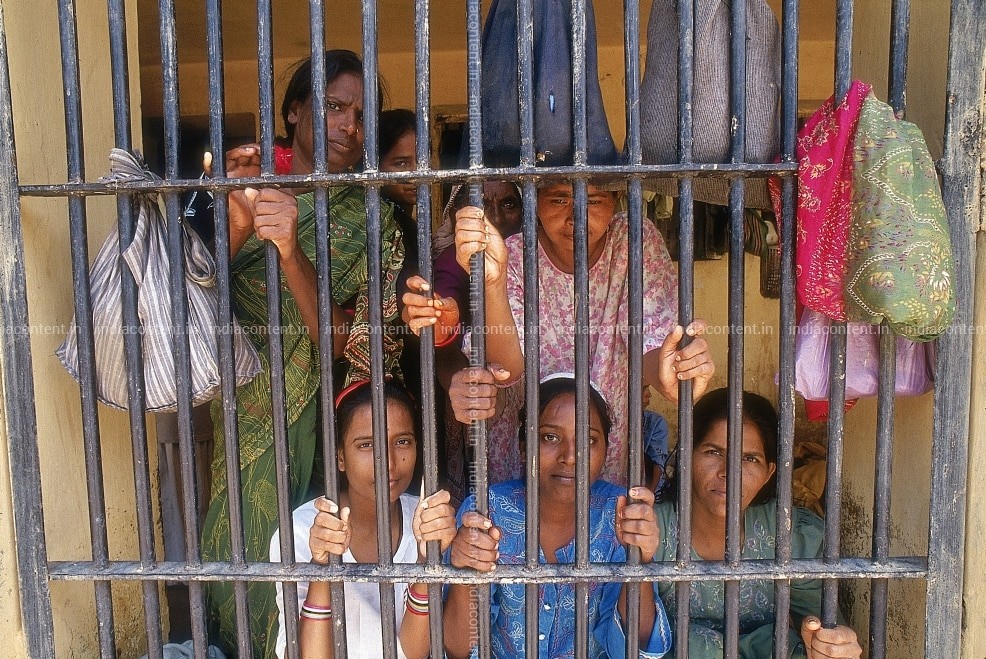
Prisons in Pakistan are in abysmal condition as they are overcrowded, unhygienic, lacking basic facilities and inconsiderate about women prisoners’ needs. Even the jailed ex-prime minister Imran Khan has been forced to stay in a small, dirty prison cell. Efforts at progressive reforms were stalled time and again in Pakistan, leaving the prison system infested with medieval-era settings even today.
The number of inmates Pakistani prisons can house is 64,099. However, the inmate population is over 100,366, which is much beyond the designed capacity. “Due to a lack of infrastructure, prison departments often did not segregate detainees from convicted criminals. There is no behaviour-based classification system that separates petty offenders from violent criminals,” said a US government report on Human Rights in Pakistan.
Some jails have 200 percent population of the planned intake. On the other hand, the number of prison and judicial staff is limited, which hurts inmates’ prospects of getting rightful facilities and relief from the courts. “In modern time the philosophy of prisons has focused on the rehabilitation of criminals, but when it becomes overcrowded, then it negatively affects the inmates’ life,” said Mukhtyar Nabi, a sociology scholar at Islamabad-based Quaid-i-Azam University.
Pakistan is among the countries that have the most overcrowded prisons, revealed Human Rights Watch (HRW). It highlighted concerning issues such as health problems due to overcrowding, violation of basic rights, and misgovernance. “Poor infrastructure and corruption have left prison healthcare services vastly overstretched. Most prison hospitals lack adequate budgets for medical staff, essential equipment,” it said.
During the Covid-led pandemic and later post-mega floods in 2022, prisoners were highly vulnerable to catching diseases thanks to overcrowding, poor hygiene, and lack of facilities. “With infections and fatalities rising daily, overcrowding in Pakistan’s prisons is a ticking time bomb… It’s no secret that Pakistan’s prisons were dangerously overcrowded even before COVID-19 struck,” said Rimmel Mohydin, former campaigner at Amnesty International during the Covid pandemic.
HRW said most of the prisoners were under trial even as many did not have access to legal aid. Besides unhealthy and inadequate food, dirty water, and unhygienic conditions, inmates in almost all Pakistani prisons were tortured and mistreatment as officials got impunity for corruption and abusive conduct.
Minor offenders are vulnerable to becoming hardened criminals thanks to the environment inside Pakistan prisons, said journalist Sajjar Shabbir. “Prisoners are unequivocally subjected to dehumanization, which contributes to the loss of their identity. The prison system imposes a rigid symbolic order that undermines the prisoners’ ability to construct a coherent sense of ‘self’,” she said.
Women prisoners are worse off. There are just 24 workers for thousands of women prisoners in Pakistan. They are not provided with the required facilities such as psychiatric screening, counselling and medical care for gynaecological and obstetric needs. Despite Pakistan being party to international treaties including the Bangkok Rules, there is no mechanism for women inmates to report abuse and harassment in the jails.
A majority of female prisoners in Pakistani jails were subjected to sexual harassment and sexual violence at the hands of jail wardens, found investigations by the United Nations Office on Drugs and Crime (UNODC). “During prison surveys, UNODC found prevalence of suicidal depression, sleep disorders and other mental illnesses among female prisoners. No gynaecologist was available on call to attend to female prisoners in Punjab,” it said.
Think tank Justice Project Pakistan (JPP) carried out a survey at the prison in Faisalabad, which revealed 82 of the 134 female inmates faced sexual violence while 72 were forced to remove clothing. “Women and female prisoners are subjected to a specifically gendered nature of torture in custody. They experience ‘psychological and sexual trauma’,” JPP said in the report submitted to the United Nations High Commissioner for Human Rights. Khan called the jail room where he was lodged a “death cell” where basic rights were denied while he blamed prison officials for employing psychological tactics to break him. Pakistan’s prison system is still based on 200-year-.old colonial model, said Dr Qadeer Alam, the Assistant Inspector General of Prisons in Punjab. “Most jails in Pakistan are relics from the colonial age and are now extremely overcrowded, with three to five people sharing a cell built for one,” he said.






